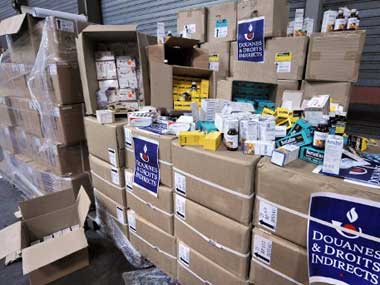Two arguments, which will convince even the most brilliant and pragmatic politician for policy change in our country are: When this is even done in America while not in India, and the poor shall be the greatest beneficiary of change. Anything for the poor is always a welcome idea but not at the cost of human health and survival. To compare American conditions with ours could be a naive if not disastrous idea sometimes. Our bureaucracy is clever in using both these, either suo motto or through their technical subordinates, whose esteem they have sufficiently diluted.
It is an open secret that American democracy is more than 260 years old. Unlike India, it attracts the best of the talents from the world, and the public is ruled by a set of governance with a minimal bureaucratic control. Contrary to that, we are a developing nation with a short history, and merit has very often than not been a casualty. While the perception of the decision is poor-centric, ultimately it is this class which bears the brunt of poor quality in a system dominated by rich and the powerful.
The story of generics versus branded medicine being used to treat patients all over the world is not new. While there is no denial of the fact that good quality generics are always comparable to the branded medicine, the quality of the product depends on the sophisticated processing and manufacturing of a research molecule. It is a global experience of the clinicians that the original molecules are more efficacious and have higher biological availability to act on the root of the disease process vis-à-vis those manufactured under different conditions and marketed after procuring licenses through dubious means.

Representational image. AFP
While in United States, there is a stringent quality control and a serious periodic monitoring of the quality, this is far from truth in India, where to get a drug license through political or bureaucratic connections by corrupt means is as easy as buying vegetables in the market. The drug control mechanisms in India have huge limitations both in terms of availability of manpower and technology. Rampant corruption in the system makes it worse. The other major limitation in our country is the non-availability of qualified pharmacist and dispensers on the medical shops. The pharmacies or the drug shops all across India are largely manned by unemployed and untrained youth or family members. The pharmacist by and large outsources his license and takes his commission out of the contract. Left to them, it could have very serious implications where the technical ingredients of which the dispenser is ignorant could be wrongly dispensed under the huge risk of allergies and side effects. Further, many drug formulations with combinations shall be difficult for the unqualified shopkeeper to deliver.
With the mushrooming of pharma companies with incentives, the owner of the drug stores shall be least concerned with the quality of the drug. While it is true that some of the medical professionals have been hand-in-glove with the pharma companies and could have harmed patient interests, by and large a doctor would always like his patient to be cured and would prefer a quality medicine with good bioavailability for primary illness. He may be using certain adjuncts to benefit the company which could always be curtailed by a prescription auditing through the Medical Council. This would certainly be more preferred than leaving patients to the mercy of unqualified drug dispensers. Leaving it to the discretion of the pharmacist could be even more counterproductive. Chemists are unregulated and have no obligations, ethical or commercial for selling products.
Regarding the drug pricing, the National Pharmaceutical Pricing Authority can always reduce the maximum retail price and leave very little room for manipulation by the pharma companies. Government could also consider introducing uniform code of marketing for bringing down the cost of medicines.
No medical professional would be against the low cost generic, provided it that is a quality drug but it is believed that not more than 1% of generic drugs sold in India undergo quality tests as practiced in USA or Europe. Ensuring availability of uniform quality of generic drugs would facilitate doctors to prescribe them with confidence.
If this is ignored it is likely to create a disastrous situation for the common men where his suffering would increase if he is dispensed “cheaper” poor quality generics. The brunt would fall on the have-nots since, the affluent and the powerful would always manage the quality drugs either generic or branded. This has happened in the larger government institutions where the branded medicines were replaced by generics. Remember while comparing generics with the branded medicines, it is just not the content of the ingredient, it is the purity and the concentration producing effective biological levels in the blood.
Another fallout of the proposed change would negatively incentivise pharma companies to invest in research and development. Not only will it create huge unemployment issues but will also greatly hamper creation of newer molecules.
I strongly urge the concerned authorities to first set their house in order and create a local framework free of corrupt practices to provide quality in generic drug testing and also create stringent process of issuing licenses. Once this is available, the Generics would obviously be as good as the so called branded. That would be a win-a-win situation for everyone.
(Dr Ashok Panagariya is Professor Emeritus and former Vice Chancellor of Rajasthan Medical University and a Padma awardee.)
Updated Date: Apr 29, 2017 13:01 PM



